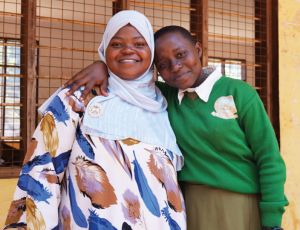
When she thrives, we all thrive
Together this giving season, we can make a difference that ripples outward to benefit everyone.
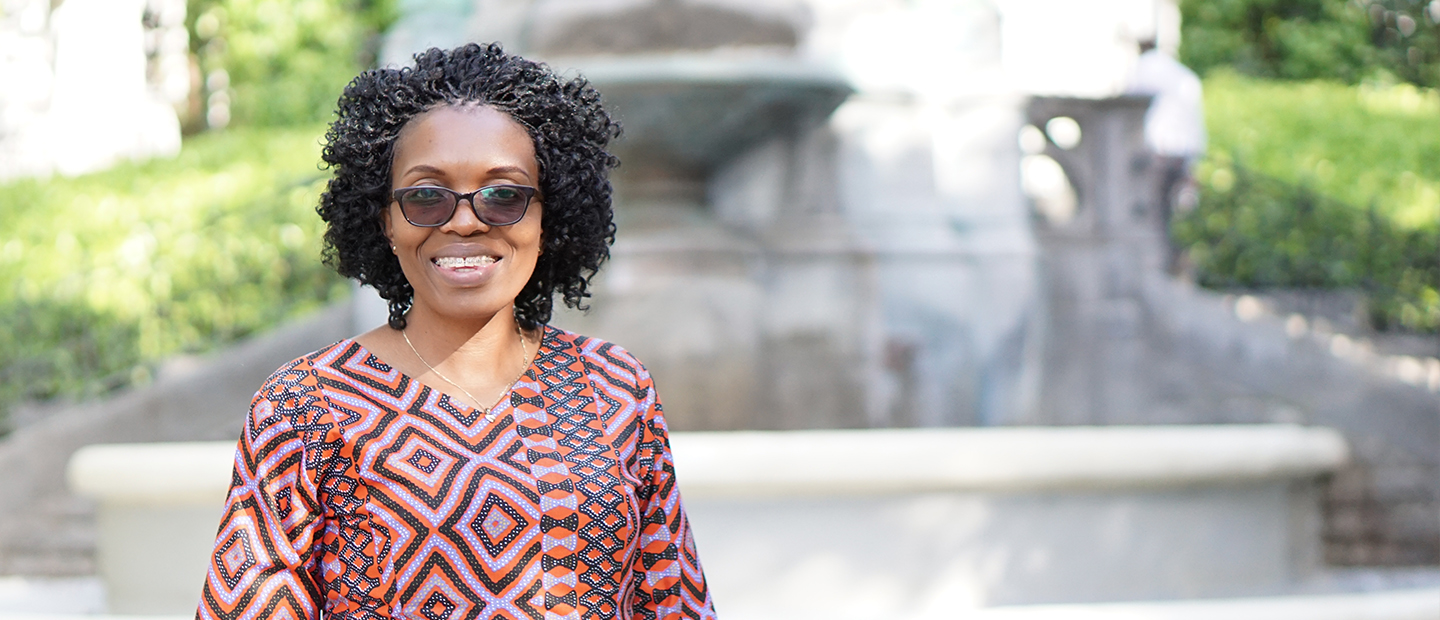

In a session entitled ‘Making the case for investing in education and health’, Faith set out how CAMFED’s holistic education programs are improving health and well-being for girls, women and their communities through the leadership of young women who were once the most marginalized.
Education is a powerful tool to ensure girls and young women understand their rights and their bodies, enabling them to take control of key life choices and enjoy better health and well-being.
Faith Nkala, National Director, CAMFED Zimbabwe
In CAMFED’s rural partner communities poverty and marginalization pose a threat to both education and health systems. Our strategic goals are based on using girls’ education as a powerful catalyst for positive change through all development indicators, including good health:
Unlocking new resources
Faith described how, with support from CAMFED and CAMA, school communities come together to improve health and education outcomes for the next generation. Parent Support Groups work to ensure vulnerable children can stay in school. They provide nutritious meals, vital to improved health and academic progress. They also work to improve school water, sanitation and hygiene (WASH) facilities and raise funds to support more children with everything from school uniforms to sanitary pads.
“We found this to be a very sustainable approach,” explained Faith. “Mothers continue volunteering long after their children have graduated. They say, ‘I am a mother. These are all my children.’ If anything happens to them, they want to ensure that there is a continued support network for their children.”
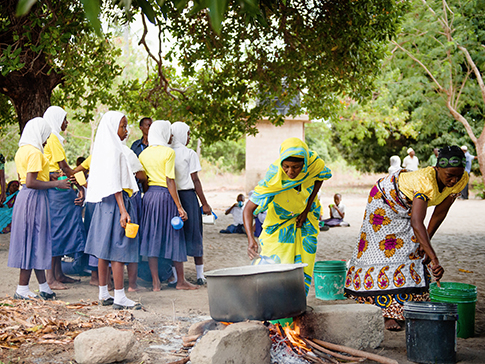
Mwanaidi and her Mother Support Group in Tanzania prepare uji for local school children. Photo: CAMFED/Eliza Powell
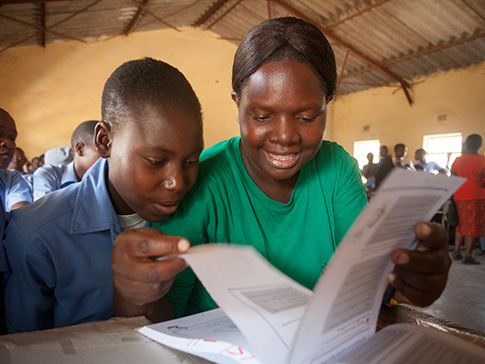
CAMA’s Learner Guides guide marginalized students through a life skills and well-being curriculum, providing practical skills as well as psycho-social support. Photo: CAMFED/Jon Pilch
Unleashing new potential
On completing secondary school, girls supported by CAMFED graduate into the CAMA alumnae network, co-founded by Faith. Thousands take up leadership positions, including as Learner Guides and Transition Guides, who support girls to succeed in school, and young women to become independent after school.
Faith presented a vital aspect of their work in local schools: delivering life skills session, including comprehensive sexuality education. As trusted ‘big sisters’ CAMA members are uniquely placed to tackle pressing issues in their communities, including teenage pregnancy, early marriage and HIV/AIDS.
The CAMA network offers the additional benefit of a social group, bringing access to financial, psychological and emotional resources that help reduce hardship and stress, and improve health.
Igniting new action
By 2018, CAMA members held more than 53,000 leadership positions at local, national and international level. Their professional and personal standing is delivering change that respects local context.
Marginalized communities are benefitting from their own young women addressing poverty and inequality by using their education to bring important health and financial literacy education, and unlocking further resources to keep the next generation of vulnerable children in school. CAMA members understand that education and healthcare are human rights, and support their communities in demanding service provision from local authorities.
The link between health and education is most clearly manifested in the many CAMA members who are now practising health professionals like Talent, a doctor from Zimbabwe and Sukuratu a nurse from Ghana.
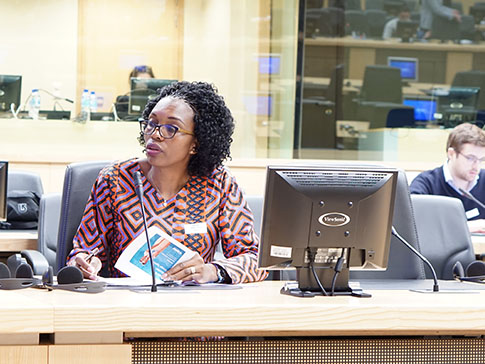
Faith Nkala at the one-day conference in Brussels, which examined the intersection between health and education, and the most impactful strategies for healthier, wealthier nations. Photo: CAMFED/Anke Adams
The evidence is clear. An educated girl will:
Faith observed: “I have seen myself that educated young women not only raise physical health outcomes by bringing knowledge and prosperity to their communities, but that they are increasing a sense of well-being and hope for families that were facing hunger, grief and hardship.”
Elissa Tauber $250
Jennifer Borenstein $26.6
Isatou Baldeh $21.4
Edith Stern $106
Ryan McCormick $127
Merlin Thomas $26.6
Leith Steel $1052
Margaret Thornton $2000
Pavur Sundaresan $211
Elle Diether $47.6
Irena MAKARUSHKA $600
Jeanie Goodwin $285
Clarice Smith $5.6
Rebeca Plank $1000
Arthur Weitz $52.9